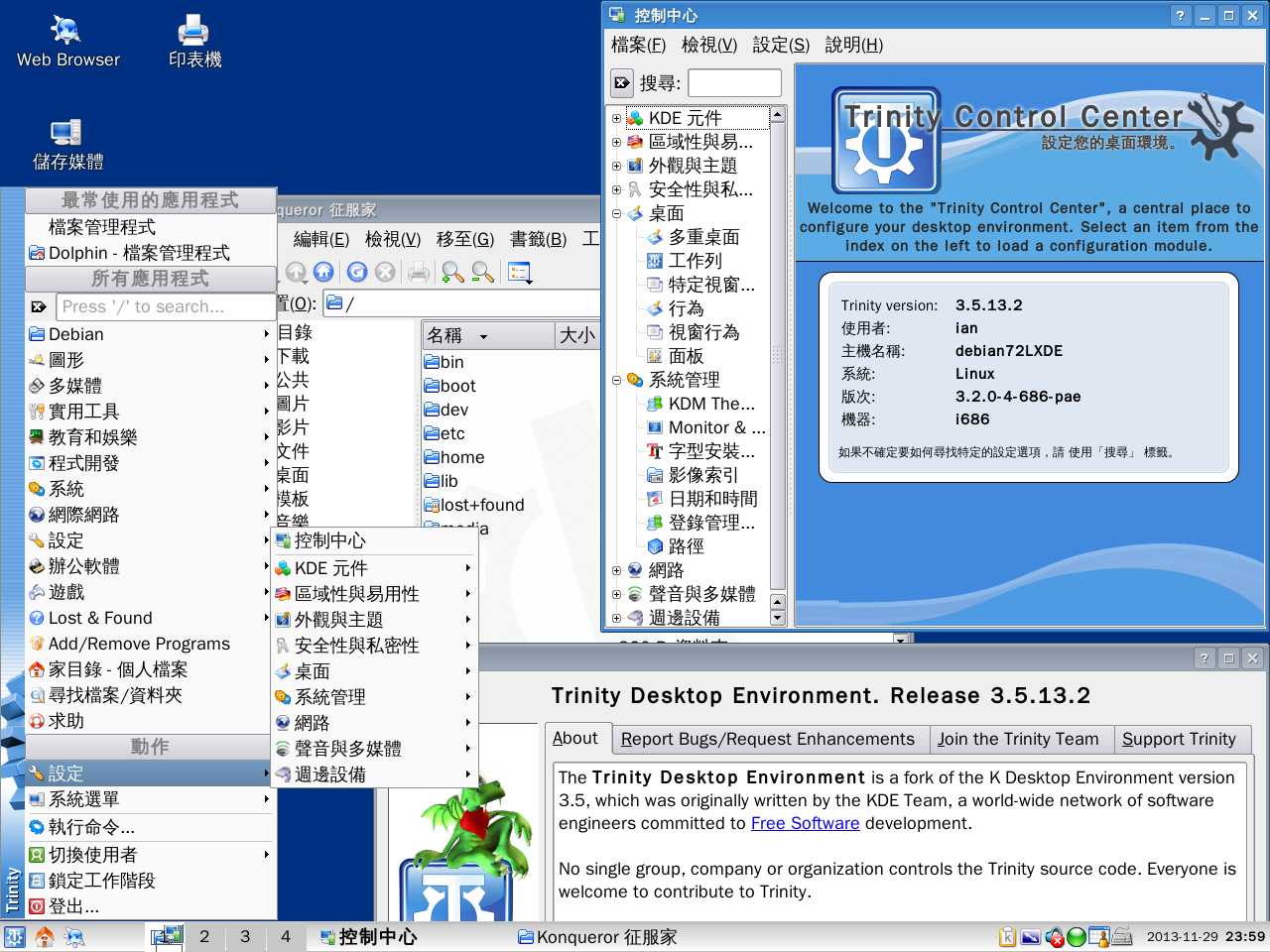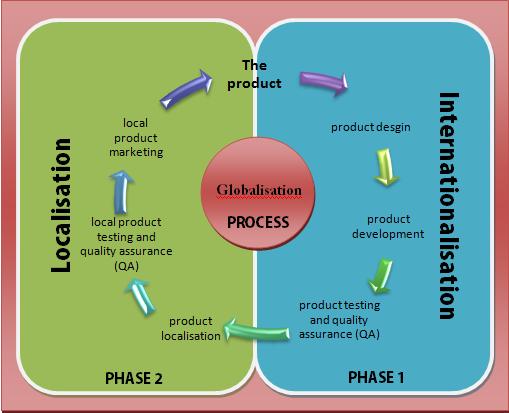|
Citrus Project
The CITRUS (Comprehensive I18N Framework Towards Respectable Unix Systems) project aims to implement a complete multilingual programming environment for BSD-based operating systems. The goals include the creation of the following things for FreeBSD, NetBSD, OpenBSD, BSD/OS and DragonFly BSD: * An ISO C/ SUS V2-compatible multilingual programming environment (locale/iconv support). * Development of an implementation of gettext and POSIX NLS catalog under the BSD license. * Multi-script framework, which decouples C API and actual external/internal encoding. * To develop system standard multi-script encoding by internationalization of filename. , the aim is to reach the same level of functionality as Solaris 7. See also * Internationalization and localization In computing, internationalization and localization (American) or internationalisation and localisation (British English), often abbreviated i18n and L10n, are means of adapting computer software to different languages, ... [...More Info...] [...Related Items...] OR: [Wikipedia] [Google] [Baidu] |
Multilingualism
Multilingualism is the use of more than one language, either by an individual speaker or by a group of speakers. It is believed that multilingual speakers outnumber monolingual speakers in the world's population. More than half of all Europeans claim to speak at least one language other than their mother tongue; but many read and write in one language. Multilingualism is advantageous for people wanting to participate in trade, globalization and cultural openness. Owing to the ease of access to information facilitated by the Internet, individuals' exposure to multiple languages has become increasingly possible. People who speak several languages are also called polyglots. Multilingual speakers have acquired and maintained at least one language during childhood, the so-called first language (L1). The first language (sometimes also referred to as the mother tongue) is usually acquired without formal education, by mechanisms about which scholars disagree. Children acquirin ... [...More Info...] [...Related Items...] OR: [Wikipedia] [Google] [Baidu] |
POSIX
The Portable Operating System Interface (POSIX) is a family of standards specified by the IEEE Computer Society for maintaining compatibility between operating systems. POSIX defines both the system- and user-level application programming interfaces (APIs), along with command line shells and utility interfaces, for software compatibility (portability) with variants of Unix and other operating systems. POSIX is also a trademark of the IEEE. POSIX is intended to be used by both application and system developers. Name Originally, the name "POSIX" referred to IEEE Std 1003.1-1988, released in 1988. The family of POSIX standards is formally designated as IEEE 1003 and the ISO/IEC standard number is ISO/IEC 9945. The standards emerged from a project that began in 1984 building on work from related activity in the ''/usr/group'' association. Richard Stallman suggested the name ''POSIX'' (pronounced as ''pahz-icks,'' as in ''positive'', not as ''poh-six'') to the IEEE instead of former ... [...More Info...] [...Related Items...] OR: [Wikipedia] [Google] [Baidu] |
Free Software Projects
Free may refer to: Concept * Freedom, having the ability to do something, without having to obey anyone/anything * Freethought, a position that beliefs should be formed only on the basis of logic, reason, and empiricism * Emancipate, to procure political rights, as for a disenfranchised group * Free will, control exercised by rational agents over their actions and decisions * Free of charge, also known as gratis. See Gratis vs libre. Computing * Free (programming), a function that releases dynamically allocated memory for reuse * Free format, a file format which can be used without restrictions * Free software, software usable and distributable with few restrictions and no payment * Freeware, a broader class of software available at no cost Mathematics * Free object ** Free abelian group ** Free algebra ** Free group ** Free module ** Free semigroup * Free variable People * Free (surname) * Free (rapper) (born 1968), or Free Marie, American rapper and media personalit ... [...More Info...] [...Related Items...] OR: [Wikipedia] [Google] [Baidu] |
Solaris (operating System)
Solaris is a proprietary Unix operating system originally developed by Sun Microsystems. After the Sun acquisition by Oracle in 2010, it was renamed Oracle Solaris. Solaris superseded the company's earlier SunOS in 1993, and became known for its scalability, especially on SPARC systems, and for originating many innovative features such as DTrace, ZFS and Time Slider. Solaris supports SPARC and x86-64 workstations and servers from Oracle and other vendors. Solaris was registered as compliant with the Single UNIX Specification until 29 April 2019. Historically, Solaris was developed as proprietary software. In June 2005, Sun Microsystems released most of the codebase under the CDDL license, and founded the OpenSolaris open-source project. With OpenSolaris, Sun wanted to build a developer and user community around the software. After the acquisition of Sun Microsystems in January 2010, Oracle decided to discontinue the OpenSolaris distribution and the development model. In Aug ... [...More Info...] [...Related Items...] OR: [Wikipedia] [Google] [Baidu] |
Filename
A filename or file name is a name used to uniquely identify a computer file in a directory structure. Different file systems impose different restrictions on filename lengths. A filename may (depending on the file system) include: * name – base name of the file * extension (format or extension) – indicates the content of the file (e.g. .txt, .exe, .html, .COM, .c~ etc.) The components required to identify a file by utilities and applications varies across operating systems, as does the syntax and format for a valid filename. Filenames may contain any arbitrary bytes the user chooses. This may include things like a revision or generation number of the file such as computer code, a numerical sequence number (widely used by digital cameras through the ''DCF'' standard), a date and time (widely used by smartphone camera software and for screenshots), and/or a comment such as the name of a subject or a location or any other text to facilitate the searching the files. In f ... [...More Info...] [...Related Items...] OR: [Wikipedia] [Google] [Baidu] |
Internationalization And Localization
In computing, internationalization and localization (American) or internationalisation and localisation (British English), often abbreviated i18n and L10n, are means of adapting computer software to different languages, regional peculiarities and technical requirements of a target locale. Internationalization is the process of designing a software application so that it can be adapted to various languages and regions without engineering changes. Localization is the process of adapting internationalized software for a specific region or language by translating text and adding locale-specific components. Localization (which is potentially performed multiple times, for different locales) uses the infrastructure or flexibility provided by internationalization (which is ideally performed only once before localization, or as an integral part of ongoing development). Naming The terms are frequently abbreviated to the numeronyms ''i18n'' (where ''18'' stands for the number of letters ... [...More Info...] [...Related Items...] OR: [Wikipedia] [Google] [Baidu] |
Application Programming Interface
An application programming interface (API) is a way for two or more computer programs to communicate with each other. It is a type of software interface, offering a service to other pieces of software. A document or standard that describes how to build or use such a connection or interface is called an ''API specification''. A computer system that meets this standard is said to ''implement'' or ''expose'' an API. The term API may refer either to the specification or to the implementation. In contrast to a user interface, which connects a computer to a person, an application programming interface connects computers or pieces of software to each other. It is not intended to be used directly by a person (the end user) other than a computer programmer who is incorporating it into the software. An API is often made up of different parts which act as tools or services that are available to the programmer. A program or a programmer that uses one of these parts is said to ''call'' that ... [...More Info...] [...Related Items...] OR: [Wikipedia] [Google] [Baidu] |
C (programming Language)
C (''pronounced like the letter c'') is a General-purpose language, general-purpose computer programming language. It was created in the 1970s by Dennis Ritchie, and remains very widely used and influential. By design, C's features cleanly reflect the capabilities of the targeted CPUs. It has found lasting use in operating systems, device drivers, protocol stacks, though decreasingly for application software. C is commonly used on computer architectures that range from the largest supercomputers to the smallest microcontrollers and embedded systems. A successor to the programming language B (programming language), B, C was originally developed at Bell Labs by Ritchie between 1972 and 1973 to construct utilities running on Unix. It was applied to re-implementing the kernel of the Unix operating system. During the 1980s, C gradually gained popularity. It has become one of the measuring programming language popularity, most widely used programming languages, with C compilers avail ... [...More Info...] [...Related Items...] OR: [Wikipedia] [Google] [Baidu] |
BSD License
BSD licenses are a family of permissive free software licenses, imposing minimal restrictions on the use and distribution of covered software. This is in contrast to copyleft licenses, which have share-alike requirements. The original BSD license was used for its namesake, the Berkeley Software Distribution (BSD), a Unix-like operating system. The original version has since been revised, and its descendants are referred to as modified BSD licenses. BSD is both a license and a class of license (generally referred to as BSD-like). The modified BSD license (in wide use today) is very similar to the license originally used for the BSD version of Unix. The BSD license is a simple license that merely requires that all code retain the BSD license notice if redistributed in source code format, or reproduce the notice if redistributed in binary format. The BSD license (unlike some other licenses e.g. GPL) does not require that source code be distributed at all. Terms In addition t ... [...More Info...] [...Related Items...] OR: [Wikipedia] [Google] [Baidu] |
National Language Support
In computing, internationalization and localization (American English, American) or internationalisation and localisation (British English), often abbreviated i18n and L10n, are means of adapting computer software to different languages, regional peculiarities and technical requirements of a target locale (computer software), locale. Internationalization is the process of designing a software application so that it can be adapted to various languages and regions without engineering changes. Localization is the process of adapting internationalized software for a specific region or language by translating text and adding locale-specific components. Localization (which is potentially performed multiple times, for different locales) uses the infrastructure or flexibility provided by internationalization (which is ideally performed only once before localization, or as an integral part of ongoing development). Naming The terms are frequently abbreviated to the numeronyms ''i18n'' ( ... [...More Info...] [...Related Items...] OR: [Wikipedia] [Google] [Baidu] |
Gettext
In computing, gettext is an internationalization and localization (i18n and l10n) system commonly used for writing multilingual programs on Unix-like computer operating systems. One of the main benefits of gettext is that it separates programming from translating. The most commonly used implementation of gettext is GNU gettext, released by the GNU Project in 1995. The runtime library is libintl. gettext provides an option to use different strings for any number of plural forms of nouns, but this feature has no support for grammatical gender. History Initially, POSIX provided no means of localizing messages. Two proposals were raised in the late 1980s, the 1988 Uniforum gettext and the 1989 X/Open catgets (XPG-3 § 5). Sun Microsystems implemented the first gettext in 1993. The Unix and POSIX developers never really agreed on what kind of interface to use (the other option is the X/Open catgets), so many C libraries, including glibc, implemented both. , whether gettext should be ... [...More Info...] [...Related Items...] OR: [Wikipedia] [Google] [Baidu] |






